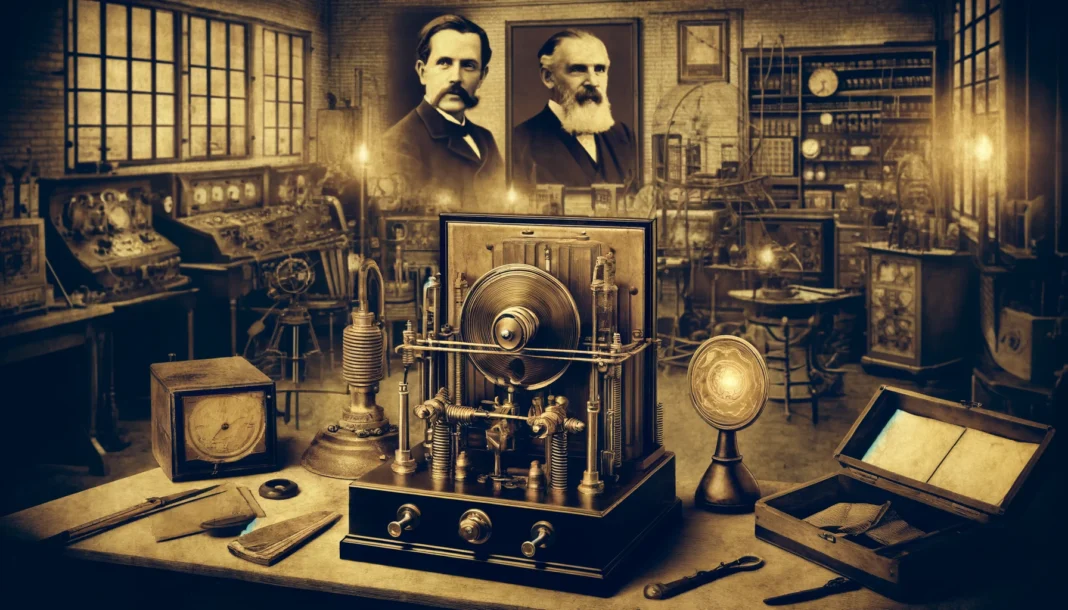Radio technology has had a profound impact on communication, reshaping how we interact and share information across the globe. This article explores the date of invention of radio, delving into the key developments and figures pivotal to this remarkable invention. By examining the timeline and the individuals involved, we can appreciate how radio evolved from theoretical science to a practical tool that revolutionizes news dissemination, entertainment, and much more. You can also read this Can Someone Tell If You Look at Their Facebook Page?
Early Experiments and Theoretical Foundations
The Beginnings of Wireless Communication
The journey to the invention of radio began long before the actual creation of radio devices. In the mid-19th century, scientists like James Clerk Maxwell and Michael Faraday laid the groundwork with their theories on electromagnetic waves and fields. Maxwell’s predictions, published between 1861 and 1865, described how electric and magnetic fields could propagate through space as waves, a fundamental principle behind radio transmission.
Heinrich Hertz’s Demonstrations
The practical demonstration of Maxwell’s theories was achieved by Heinrich Hertz in the late 1880s. Hertz successfully produced and detected electromagnetic waves in his laboratory, proving that these waves could travel through air and space. His experiments did not focus on communication but rather on proving the existence of electromagnetic waves, setting the stage for others to explore their practical applications.
Guglielmo Marconi and the Birth of Practical Radio
Marconi’s Early Innovations
Guglielmo Marconi, an Italian inventor, is often credited with the practical invention of the radio. Fascinated by Hertz’s work, Marconi began experimenting in the early 1890s. His goal was clear: to create a wireless telegraph system. By 1895, Marconi had developed a basic system capable of sending signals over a distance of one and a half miles without the need for wires. His invention utilized a combination of Hertzian waves, a coherer for signal detection, and various tuning mechanisms to focus the transmission.
The Date of Invention of Radio
Identifying a single “date of invention of radio” is challenging due to the incremental nature of Marconi’s and others’ contributions. However, a pivotal year was 1895 when Marconi achieved his first successful wireless transmission. Over the next few years, he would refine this technology and stage public demonstrations, culminating in a famous 1897 demonstration in England that truly showcased the potential of radio communication.
Legislative and Technical Developments
Advancements and Regulation
As Marconi and others continued to advance radio technology, the need for regulation became evident. The early 1900s saw the establishment of radio frequency management and licensing systems, especially as the number of amateur and commercial users of radio technology exploded. These regulatory measures were crucial in managing the airwaves and facilitating orderly communication, especially in maritime uses.
Impact and Legacy of Radio
Transforming Communication
The invention of radio dramatically transformed how news was shared, how armies communicated in war, and how people were entertained. By the time of World War I, radio had become an essential tool for military communication. Post-war, it entered civilian life, becoming a popular medium for entertainment and news broadcasts.
Radio’s Ongoing Evolution
The fundamental technologies behind the first radios have led to developments in television, mobile telephony, and wireless Internet. Today, the principles of radio are used in almost all wireless communications.
Conclusion
The date of invention of radio marks a significant turning point in technological and social history. While pinpointing a single date is less meaningful than understanding the era of innovation that brought radio to life, it’s clear that the late 19th century, particularly the year 1895, stands out as a critical period. Radio’s invention opened up new horizons in communication, proving to be a cornerstone of modern society.



